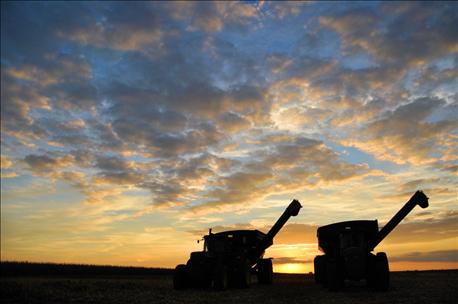
My Sunday school class has been talking about women and femininity lately — specifically, what in the world it all means in 2016, and how our ideas about femininity have been shaped. This week, we raised the question: How did what you see growing up, in either of your parents, shape your ideas about what it means to be feminine?
I’m not a fast thinker, so this didn’t occur to me until after the question had been asked and answered by the group, but a singular conversation keeps coming to mind: Dad would lean in the back door and call out, “Hey Suz, you got a minute?”

READY TO HELP: Watching my parents work together, I knew what it meant to be a woman on the farm — when any second could bring a call for help.
Granted, I was young, but I gathered quickly that this translated into “Mom’s day is shot.” Because what Dad really meant was that he needed help with one or more of the following: get parts, move cows, run to Rural King, disk a field, doctor a cow, or maybe move an auger. And it would take way more than a minute.
But you know what? She always said yes. She didn’t have a minute. She sometimes complained. But she did it anyway.
Mom was a helper to Dad, in the truest sense of the word.
“It’s not good for the Man to be alone; I’ll make him a helper, a companion.” Genesis 2:18.
We didn’t have other family involved in the farm, and no hired hands either. It was just Mom and Dad. She dropped everything to disk a field, help get a cow in, make a parts run.
We seem to talk a lot lately in agriculture about whether women should be called farmers or farmwives or “farmhers.” I can’t say I think it really matters. Honestly, I can’t think of anything I care less about. Call yourself whatever you’d like.
What I saw growing up was strength in the team, because they helped each other. They got stuff done. They didn’t always get along. But they worked together.
Back when I first brought John home to meet my parents, Dad told me (as we chased cows) that John and I needed to be able to work well together.
Turns out, I already knew that.
About the Author(s)
You May Also Like






